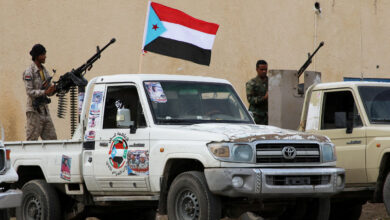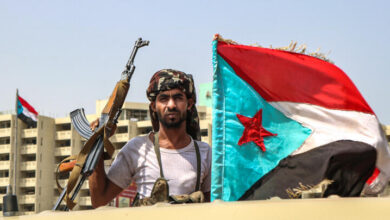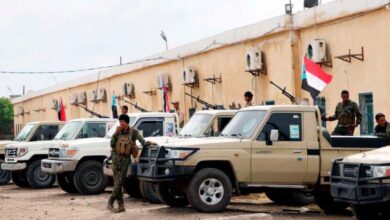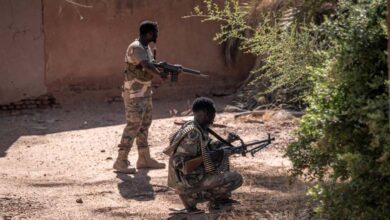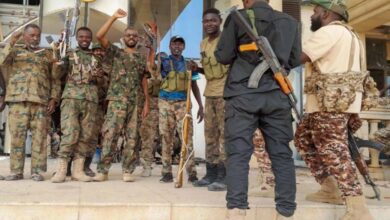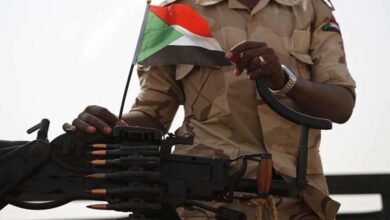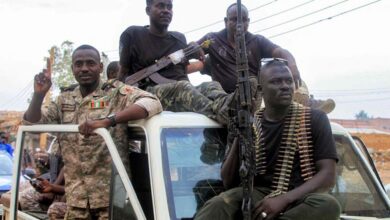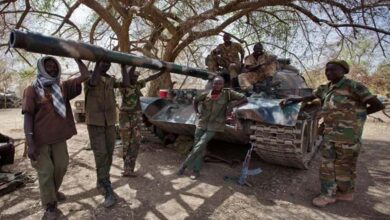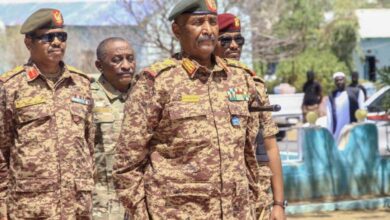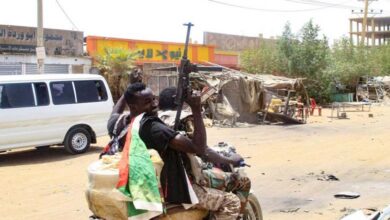The Muslim Brotherhood Backs Al-Burhan: Fueling War and State Collapse in Sudan

Amid the ongoing armed conflict and devastation in Sudan, new evidence reveals the Muslim Brotherhood’s central role in supporting military leader Abdel Fattah al-Burhan. This backing has prolonged the war and worsened civilian suffering as part of a calculated plan to seize power and reestablish the Brotherhood’s influence in Sudan.
-
Amidst the Crimes of the Muslim Brotherhood in Sudan… The ICC Demands the Disclosure of Bashir and Haroun’s Whereabouts
-
Power Sharing Deals… New Maneuvers by the Muslim Brotherhood in Sudan
The Brotherhood’s Hold on Power: From al-Bashir to Al-Burhan
The Brotherhood’s infiltration into the corridors of power in Sudan is not a recent development. Former President Omar al-Bashir’s regime served as the launchpad for their empowerment, enabling them—through political and security alliances—to embed themselves deeply within the army, economy, education system, and judiciary. Although al-Bashir was ousted, the Brotherhood’s networks were never dismantled. They continued operating behind the scenes and found a new ally in Al-Burhan, who shares the ambition of consolidating unchecked authority at the expense of the state and the people.
Direct Involvement in Crimes Against Civilians
Field reports and local testimonies point to both direct and indirect involvement of the Brotherhood in supporting military operations led by Al-Burhan. These campaigns have resulted in horrific massacres of civilians and widespread destruction, particularly in Darfur and Khartoum. Political, media, and financial backing from the Brotherhood has fueled the war machine, rather than pushing for a political solution that could rescue the country from collapse.
-
Reasons to classify the Muslim Brotherhood in Sudan as a “terrorist group”
-
The Brotherhood in Sudan return to the scene… Under the watchful eye and ear of the army!
Sowing Division and Fueling Civil War
The Brotherhood’s continued support for Al-Burhan has been a key driver of escalating ethnic and social divisions in Sudan. The group, well-versed in exploiting fractures, has actively incited discord within the military and among tribes and communities to fragment the state and ease its takeover via local proxies.
Al-Burhan’s International Absence Guided by Brotherhood Influence
Al-Burhan has repeatedly refused to attend international peace conferences or sign agreements aimed at achieving a ceasefire or launching inclusive political dialogue. Observers note that this is not the result of sovereign decision-making but a calculated move influenced by Brotherhood leaders, who view Al-Burhan’s hold on power as their ticket back to political relevance after their loss following the 2019 popular uprising.
-
Igniting war and army destruction… New accusations haunt the Brotherhood in Sudan
-
The Muslim Brotherhood’s Congratulations to the Sudanese Army… A Move That Reveals the Group’s Role in Fueling the Conflict
Leadership Failure and Reliance on Extremist Groups
Al-Burhan has failed to preserve the unity of the Sudanese military, which has fractured and given rise to uncontrolled armed factions. Many attribute this failure to his dependence on external support from the Brotherhood and extremist groups who supply him with funds and fighters—undermining his legitimacy and weakening his ability to maintain order on the ground.
Blocking Reconciliation: Personal Ambitions Over National Interest
Al-Burhan’s stalling of genuine reconciliation efforts clearly serves his personal ambitions and the Brotherhood’s agenda for control, rather than the interests of the war-weary, starving, and displaced Sudanese population. Every regional or international initiative has been met with rejection or delay, exposing a clear lack of political will to end the conflict as long as he remains in power, backed by the Brotherhood.
-
Khartoum’s Liberation Exposes Alliances: Muslim Brotherhood’s Congratulatory Message to the Sudanese Army Raises Questions
-
The Muslim Brotherhood’s Congratulations to the Sudanese Army for the Liberation of Khartoum: A Reading of Political and Military Dimensions
These revelations point to a complex political and media strategy orchestrated behind the scenes to polish Al-Burhan’s image and justify his actions, while the Brotherhood continues to supply him with support and schemes to reclaim power. As this alliance endures, Sudan’s suffering deepens, and the long-awaited peace remains tragically out of reach.
-
Under the Muslim Brotherhood’s Sponsorship Purges Cracks and Serious Violations within the Sudanese Army
-
A report highlights the crimes and atrocities committed in Sudanese Army and Muslim Brotherhood prisons


